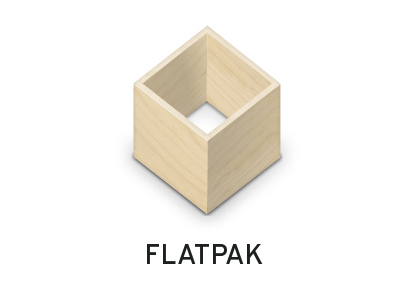How To Install Flatpak on Debian 12

In this tutorial, we will show you how to install Flatpak on Debian 12. In the vast world of Linux, the quest for universal package management continues to evolve. Flatpak, a revolutionary packaging technology, offers a solution to one of Linux’s most enduring challenges: software installation and distribution across multiple distributions.
This article assumes you have at least basic knowledge of Linux, know how to use the shell, and most importantly, you host your site on your own VPS. The installation is quite simple and assumes you are running in the root account, if not you may need to add ‘sudo‘ to the commands to get root privileges. I will show you the step-by-step installation of the Flatpak on a Debian 12 (Bookworm).
Prerequisites
- A server running one of the following operating systems: Debian 12 (Bookworm).
- It’s recommended that you use a fresh OS install to prevent any potential issues.
- SSH access to the server (or just open Terminal if you’re on a desktop).
- An active internet connection. You’ll need an internet connection to download the necessary packages and dependencies for Flatpak.
- A
non-root sudo useror access to theroot user. We recommend acting as anon-root sudo user, however, as you can harm your system if you’re not careful when acting as the root.
Install Flatpak on Debian 12 Bookworm
Step 1. Before we install any software, it’s important to make sure your system is up to date by running the following apt commands in the terminal:
sudo apt update
This command will refresh the repository, allowing you to install the latest versions of software packages.
Step 2. Installing Flatpak on Debian 12.
Now install the Flatpak package by running the following command:
sudo apt install flatpak
Add the Flathub repository by running the following command:
flatpak remote-add --if-not-exists flathub https://flathub.org/repo/flathub.flatpakrepo
Update Flatpak’s metadata, ensuring you have the latest information on available applications:
flatpak update
By default, Flatpak is secure, isolating applications from your system. However, some applications might need additional permissions:
flatpak override --user --filesystem=home <app-name>
Replace <app-name> with the name of the application that requires specific permissions.
Step 3. Managing Flatpak.
With Flatpak up and running, it’s time to explore application management.
- A. Installing Flatpak Applications
1. Searching for Applications
Find the application you want to install using the search command:
flatpak search <app-name>
- Installing a Single Application
To install a single application:
flatpak install flathub <app-name>
Replace <app-name> with the desired application’s name.
- Installing Multiple Applications
Install multiple applications simultaneously by specifying each one:
flatpak install flathub <app1> <app2> <app3>
- B. Listing Installed Applications
List all installed Flatpak applications:
flatpak list
- C. Updating Flatpak Applications
Keep your Flatpak applications up to date:
flatpak update
- D. Removing Flatpak Applications
Uninstall an application with the uninstall command:
flatpak uninstall <app-name>
- E. Managing Runtimes
Runtimes are essential components for running Flatpak applications. Update them when needed:
flatpak update --appstream
Congratulations! You have successfully installed Flatpak. Thanks for using this tutorial to install the latest version of the Flatpak on Debian 12 Bookworm. For additional help or useful information, we recommend you check the official Flatpak website.